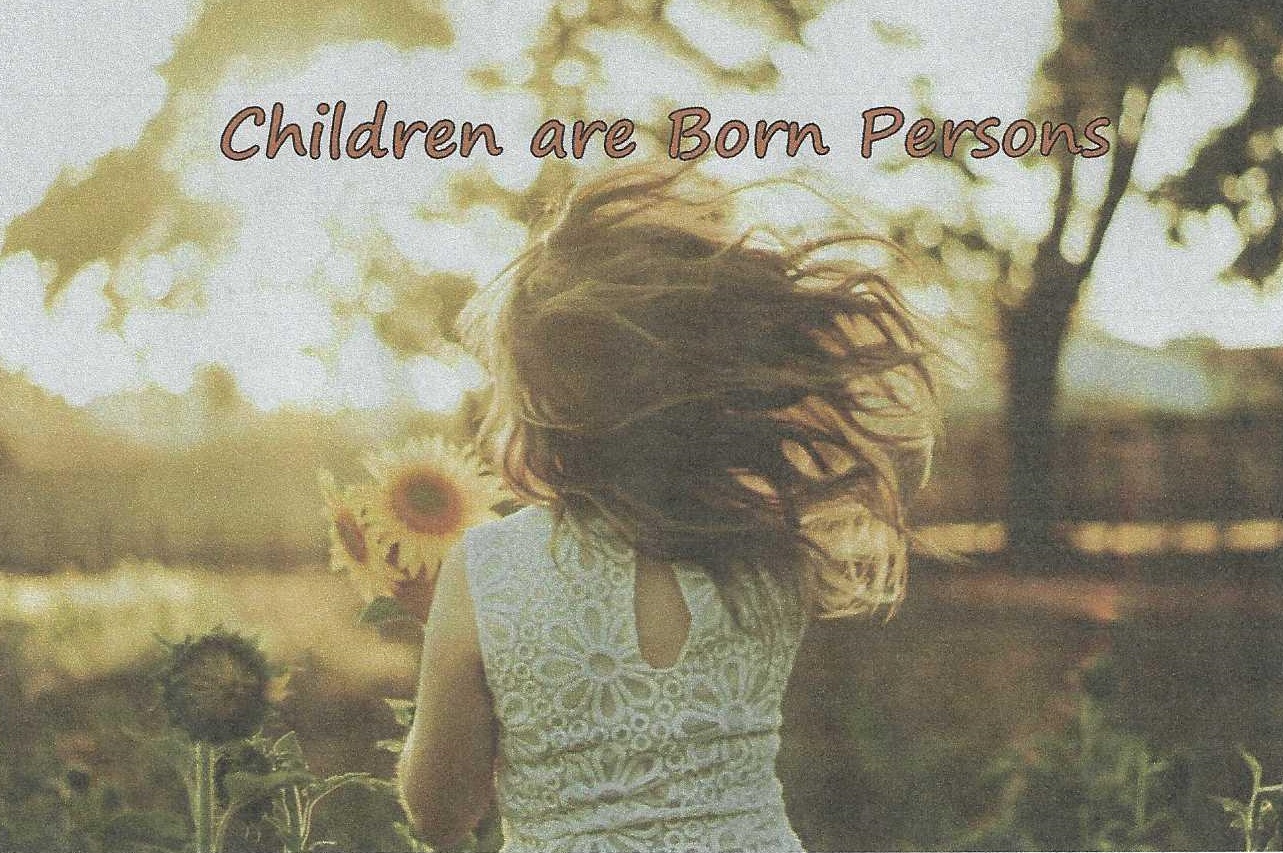
“Children are born persons” is the first of Charlotte Mason’s Principles of Education and the foundation on which all the other principles lie. Susan Schaffer Macaulay states that “it is not some minor element of a greater truth. It is a central truth in its own right.”

The idea of a child as a born person is that we are to respect and take seriously the child as an already formed person. That does not mean that they are already educated, but that within themselves lays the ability and power to educate themselves. A teacher cannot ‘force’ learning upon a child as much as we may try. A child is not an empty vessel, waiting to be poured into by the parent or educator, but within him/her already lays the God-given capacity to respond to ideas and knowledge. Furthermore, they are hungry for knowledge- not facts and information, but true knowledge.

At Eagle’s Wing, the principle of “Children are Born Persons” is the core of our principles and who we are. A child of any age and any capacity can thrive with a Charlotte Mason education. This means practically, that we do not adhere to grade-level ‘standards’ or expectations. (These ‘standards’ are completely arbitrary and manmade anyway and did not even exist before about fifty years ago.) Rather, we respect all individuals in all their varying capacities and methods to learn.
The child who excels in their scholastic efforts is given the ability to dig deeply and to learn much. They develop a thirst for knowledge and a lifestyle of learning that goes far beyond their ‘schooling’ years. For a child who struggles with the skills of academia, the teacher-parent can respond to the abilities of that individual child, serving the child first, and not the curriculum. All children will thrive under this principle of respect. Charlotte tells us that in her schools, “every child is discovered to be a person of infinite possibilities.” Every child.

As parent-educators, this should greatly put our minds at ease. We are not responsible for the whole of their education, (and we must not forget that education lasts a lifetime). We are simply responsible to spread the feast before them and dig in together with them, not prodding them, but ‘allowing then to stand or fall by their own efforts’.
Charlotte Mason says,
It would be better for boys and girls to suffer the consequences of not doing their work, now and then, than to do it because they are so urged and prodded on all hands they have no volition in the matter. The more we are prodded the lazier we get, and the less capable of the effort of will which should carry us to, and nearly carry us through, our tasks. Boys and girls are, on the whole, good, and desirous to do their duty.
Volume 6, Philosophy of Education
This is difficult in the short run, but in the long run will develop students who are responsible for their own learning and their own selves, and who will indeed become the men and women God intended them to be.
Susan Schaffer Macaulay tells us that,
“He (the child) is a separate human being whose strength lies in who he is, not is who he will become.” Parents, often especially homeschooling parents, fall prey to the lie that we can ‘shape’ our children.
For the Children’s Sake
As parents and educators, we can guide our children, we can place the feast of truth, goodness and beaty before them, but we cannot and should not try to shape our children. Only the Holy Spirit within them can do that.